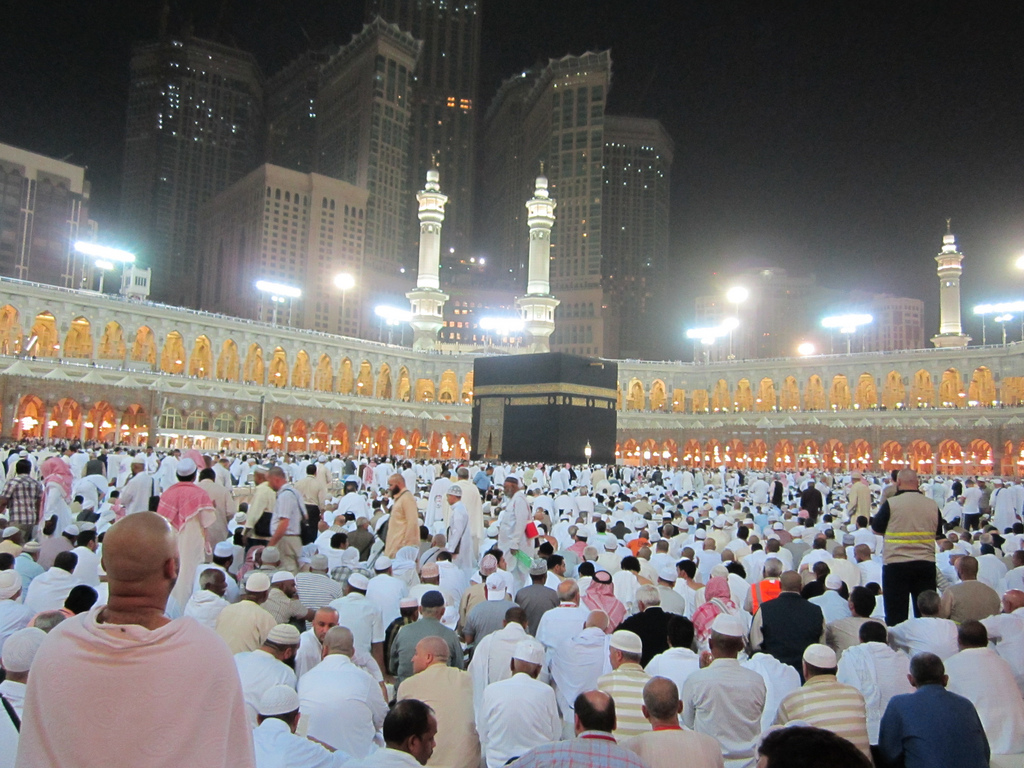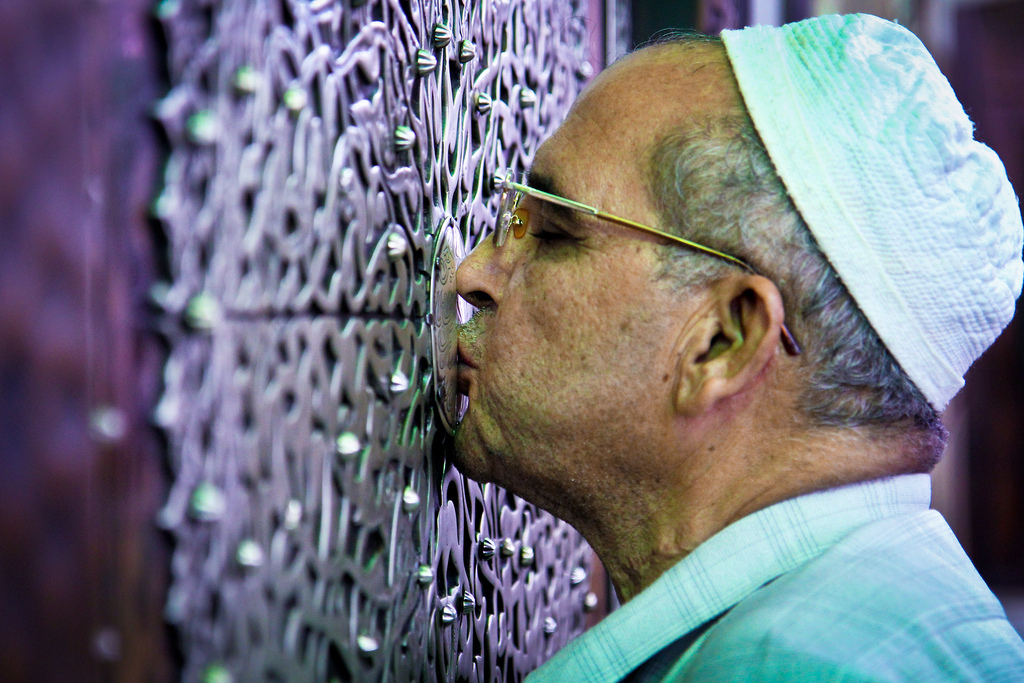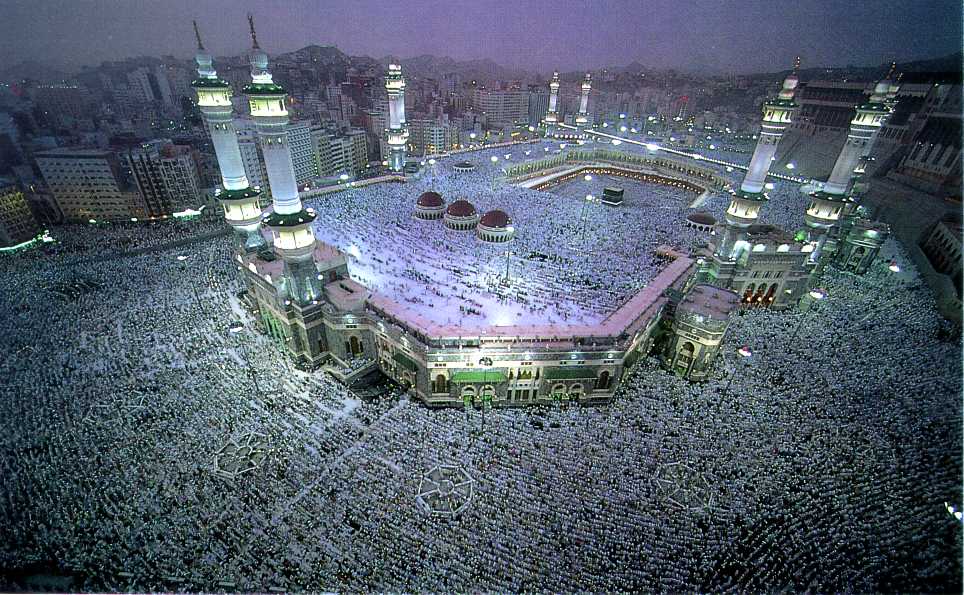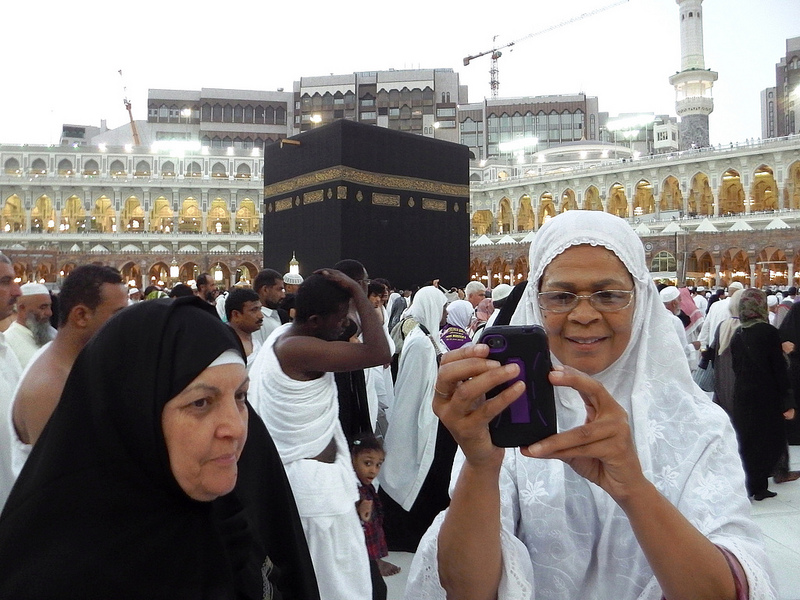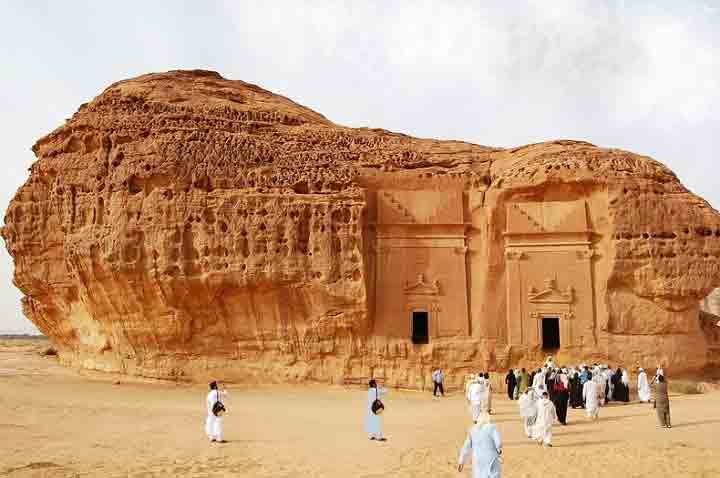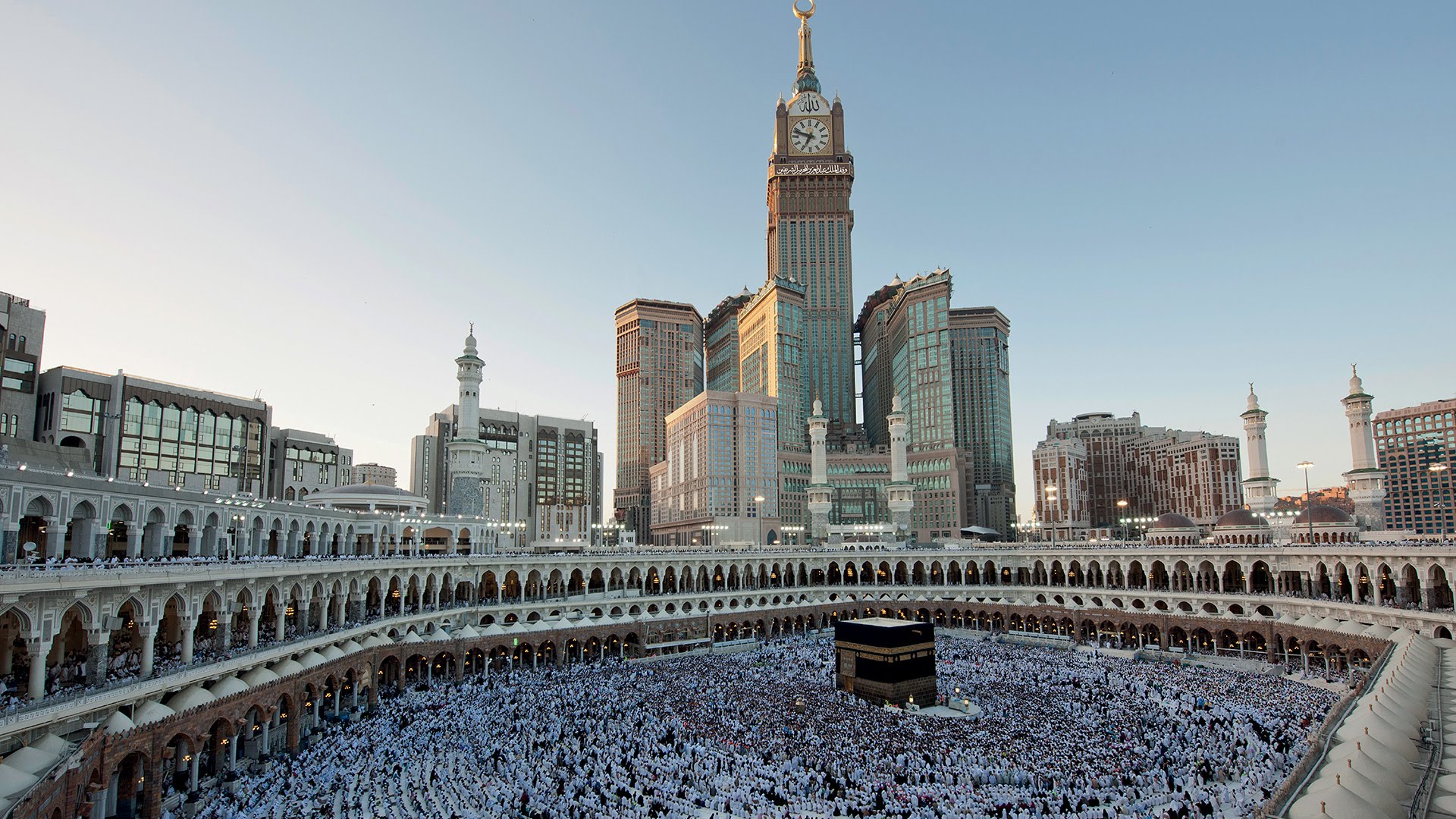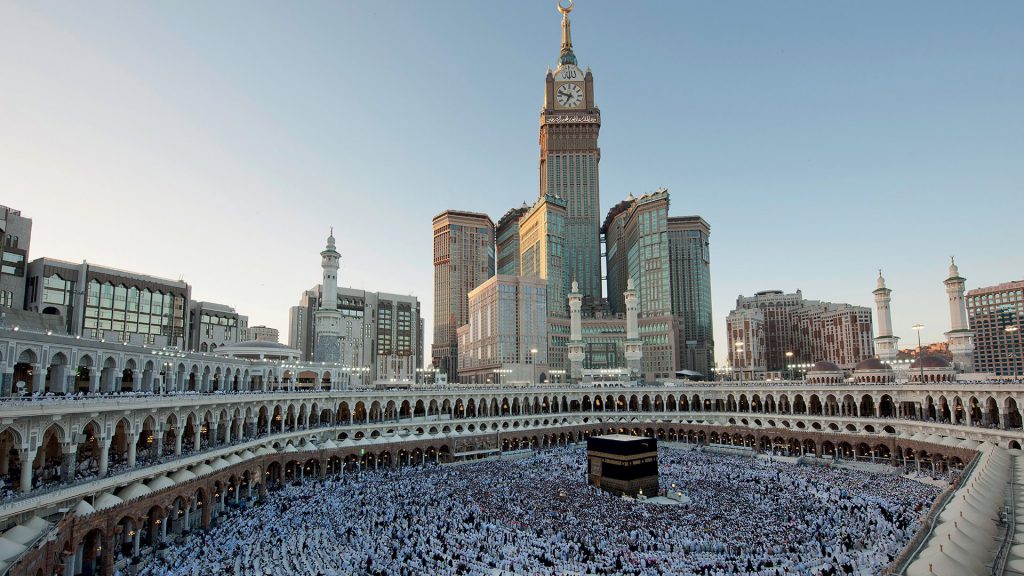 Image by: Flickr
Image by: Flickr
These are some things I picked up on my recent trip there. Feel free to email me for anything in particular:
* Don’t be afraid of going on umrah while you are young. There were tons of young couples with the look of passion in their eyes for each other there, sharing themselves with God. It was beautiful
* Bring an extra set of Ihram in case one gets dirty or you sweat too much
* Be careful when wearing the ihram. I was accidentally flashed once
* If you are sensitive to light bring sunglasses as it gets very bright at the kaaba
* A trick to kissing the black stone is to join the queue 10 – 15 minutes before the azan for Asar. The people pushing are shooed away and the line moves quickly.
* for the hijr ismail for Zohor or Asar pray near the entrance and when salat is finished go near the entrance. After the funeral prayer they will open the gate up and it will be straightforward to go in
* Learn the funeral prayer (salat Jenazah). You will pray it 5 times a day, I kid you not.
*The three most happening hotels are the intercontinental (dar tauhid), hilton and Zam Zam suites. Theres a nice shopping mall at hilton with KFC, Hardees (delicious) and burger king. Outsiders can use the internet there (SR50 per hour at the business centre). Zam Zam suite has a high class shopping mall there and the intercontinental is closest to the kaaba
*Dar Firdaus is probably the closest of the other hotels. Used to be called the Grand Makkah Hotel before it was renovated. Rooms are reasonable sized and canteen has Malay food (cook from Penang). Workers are quite friendly as well, and they keep the place clean and efficient. Going out from King Fahd gate of kaaba you cross the bus stop and the hotel is right there. Only just a bit further than the 5 star hotels (it is 3 or 4 star. 3 star by Malaysia standards).
* don’t be put off by the hot weather. Even though it is very hot you really don’t feel it
* there are places for ladies to pray on the second floor of the masjid haram. Near the intercontinental and Zam Zam suite entries there are escalators. It is much more peaceful there rather than at the ground floor.
* Ladies are allowed into the ar raudah section of the prophets mosque in the morning and night for an hour or so. The one at night is a lot less crowded
*If you want to pray near the kiblat for congregational prayers, do sunnah inside first and then go to where people are doing tawaf. People will form lines there just before salat starts.
*Not much food in the airport and it is expensive so if possible bring food and drinks from elsewhere. They don’t check for liquids at immigration.
* Need to pray in the open at the airport so bring a prayer matt
* Follow all the readings and whatnot on the first umrah. After that the second time can do it more from your heart. The first time you try you will be nervous and in awe of the whole situation for your heart to appreciate everything.
Article by: tripadvisor
